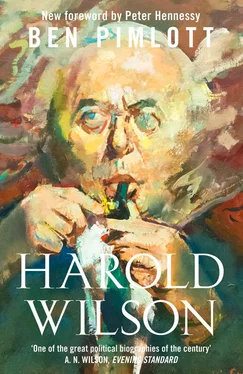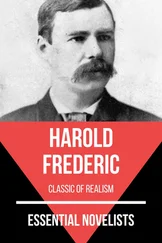The Britain that is going to be forged in the white heat of this revolution will be no place for restrictive practices or for outdated methods on either side of industry … In the Cabinet room and the board room alike those charged with the control of our affairs must be ready to think and to speak the language of our scientific age. 8
From that autumn day on the Yorkshire coast, any political word-association game would twin ‘white heat’ with ‘Harold Wilson’.
As a country we are still searching for that Holy Grail of full employment, high productivity, export-led prowess sustained by the technical ingenuity and the applied little grey cells of a well-trained, flexible, agile and highly motivated world-class workforce. Today, in, for example, Michael Heseltine’s highly influential report on growth for the Cameron coalition government, No Stone Unturned , 9the ingredients of such a strategy would be different, stressing a far greater charge of private sector input within a public/private mix and no trace of the revived or new state enterprises that animated Wilson’s view from the Scarborough Conference Hall. But the clarion call to embrace new technology and the rekindling of once great industrial powerhouses has more than a dash of Scarborough about it.
The failure to make manifest the promise of Scarborough has blighted Wilson’s reputation from the late 1960s until today, I think now (though once I did not) to probably an excessive degree. It’s not just that Britain or ‘England’, as Disraeli called it, is ‘a very difficult country to move … and one in which there is more disappointment to be looked for than success!’. 10The very nature of the state did not lend itself to becoming the production engineer of such a transformation. We simply did not possess what the economist Chalmers Johnson later called the kind of ‘developmental state’ required. 11
In my judgement, Wilson knew this when he rose to bathe his Scarborough audience in the warmth of the ‘white heat’ of the longed-for technological revolution. He said as much in an agenda-setting speech he called ‘The New Britain’ in Birmingham Town Hall on 19 January 1964: ‘We must reconstruct our institutions … This means a new sense of drive in the higher direction of our national affairs; it means changes in our departmental structure to reflect the scientific and technological realities of the new age.’ 12
For a fundamental change in the structure of Whitehall’s economic and industrial ministries was also central to the plan. In October 1964 he split the Treasury, leaving it a ministry of finance and public spending and placing responsibility for growth and planning in a new Department of Economic Affairs under his mercurial deputy, George Brown, whom he had defeated in the race to succeed Gaitskell. A second new department, the Ministry of Technology, was created as the ‘white heat’ department and placed in the charge of the left-wing leader of the Transport and General Workers’ Union, Frank Cousins. The hope was that these institutional innovations would fuel a take-off for the British economy as laid out in the French-style National Plan unveiled by Brown in September 1965.
A foreword is not the place for an autopsy on the failure of Wilson’s grand design. Ben’s pages carefully and vividly anatomise how it played out, not least how the anticipated ‘creative tension’ between Jim Callaghan’s Treasury and George Brown’s DEA produced more tension than creativity, especially when the showdown came between keeping the pound at $2.80 on the exchanges rather than devaluing and dashing for growth during the economic crisis of July 1966, when the balance of payments (the great economic totem of the age) worsened on the back of a protracted seamen’s strike and the government resorted to deflationary measures and an incomes policy.
Wilson still sought new ways of stimulating the British economy to rise to a higher and more productive trajectory after the setback of July 1966 and the inevitable – but still humiliating – devaluation of the pound in November 1967 from $2.80 to $2.40. With his favourite minister, the dazzling Barbara Castle, at the Department of Employment and Productivity (the old Ministry of Labour by another name), Wilson sought to curb the power of the unions and the rash of ‘wildcat’ strikes that were such a familiar Sixties phenomenon with a set of proposals in a white paper they called In Place of Strife. This went down in flames in June 1969, battered by hostile ordnance hurled by the National Executive Committee, the wider Labour movement and, finally, a Cabinet prepared to settle for a feeble ‘solemn and binding’ undertaking from the TUC to spare no effort in curbing industrial action. The ‘white heat’ speech of 1963 and the promise of 1964 were tarnished for ever.
They were also unfulfilled. As Sir Alec Cairncross, Head of the Government Economic Service from 1964 to 1969, put it in his audit of the British economy since 1945, ‘the target assumed’ by the 1965 National Plan was ‘an average 3.8% rate of growth compared with an average rate of only 2.9% from 1950 to 1964 and a rate actually achieved between 1964 and 1970 of only 2.6%’. 13There was no leap to growth; no new trajectory for the British economy.
Wilson did not reach the benchmark he had drawn for himself and his governments. In pursuit of his grail of growth, Wilson also cut against his own Commonwealth instincts and turned to what at that stage was the unarguable economic success story of the Common Market of the six original members of the European Economic Community led by West Germany and France. He and Brown (moved to the Foreign Office from the DEA after the 1966 crisis) determined to persuade sceptical Cabinet colleagues of the EEC route to economic salvation. They set off for a round of conversations across the European capitals, declaring that they would not take ‘No’ for an answer as Harold Macmillan had been forced to by President Charles de Gaulle of France in January 1963, following the first UK application. De Gaulle rather liked Brown calling him ‘Charlie’ when the Harold and George show passed through Paris – but he said ‘No’ again anyway.
At heart Wilson was a Commonwealth and an Atlanticist man, not a European man. A strong believer in the NATO alliance (very much a creation of Ernest Bevin, Foreign Secretary in the Attlee administration in which Wilson was so proud to have served). Wilson is remembered fondly by today’s Labour left for setting his face against sending British troops to fight in the Vietnam War despite intense pressure from President Lyndon Johnson in Washington, who repeatedly said that even a platoon of Black Watch bagpipers would do. Wilson’s argument was partly that the UK was doing its duty in Asia fighting (and winning) the ‘Confrontation’ with Indonesia.
His handling of the perennial question of Labour and The Bomb was also masterly. Even though it was initially Labour’s bomb (Attlee took the decision to procure a UK atomic weapon in a Cabinet committee in January 1947; though the first test took place under a restored Churchill premiership in October 1952), the H-bomb era brought the Campaign for Nuclear Disarmament into existence in 1958, which, briefly, captured the Labour Party Conference in 1960–61. For a time as Leader of the Opposition, Wilson gave the left the impression that though he was a multilateral disarmer, he did not believe Britain should accept the high level of dependence on the United States implicit in the purchase of submarine-launched Polaris missiles in the deal Macmillan struck with Kennedy at Nassau in December 1962. Labour’s manifesto for the 1964 general election, Let’s Go with Labour for the New Britain, said of the new system: ‘it will not be independent, it will not be British and it will not deter’ and pledged ‘the renegotiation of the Nassau Agreement’. 14
Читать дальше











